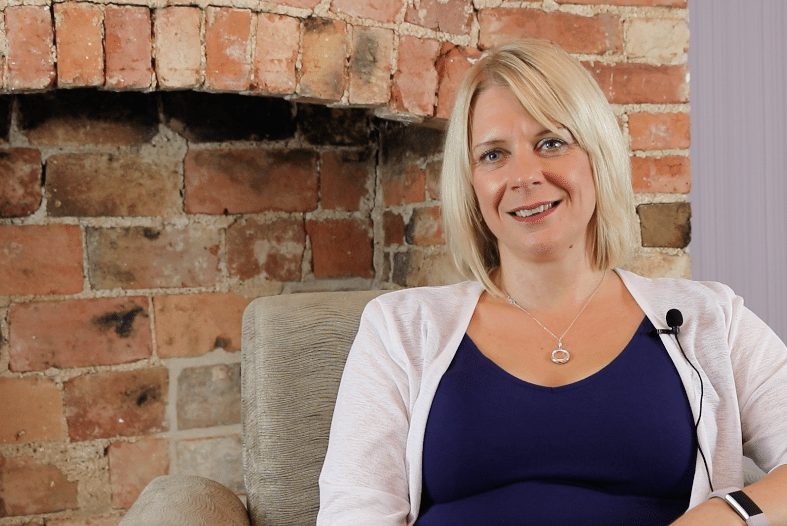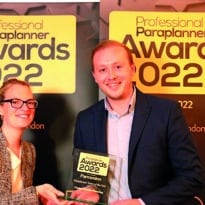Caroline Stuart tells Rob Kingsbury what her role as head of Technical Solutions at DB Wood entails, how she thinks paraplanning will progress as a profession, and why she is hosting this year’s national Paraplanners’ Powwow
Attendees of the national Paraplanners’ Powwow in September will find it has a new host, Caroline Stuart. The head of Technical Solutions at DB Wood has stepped up to the plate following last year’s announcement that there wouldn’t be another Powwow unless someone else could take it over.
Caroline says she felt inspired by everything she has gained over the years from attending the Powwow and wanted other paraplanners to continue to have the benefit of coming together with their peers to learn and hear what other paraplanners were going through, their problems and issues and how they were dealing with them. “I have learned and taken away so much from the Powwow over the years, I just didn’t want to see it disappear,” Caroline says. “It’s a lovely environment, where people do feel comfortable speaking up about things – it was where I first spoke up in a public setting – and it’s a great way to make and catch up with paraplanner friends.” (Caroline talks about the Powwow in the accompanying filmed interview)
Having been a paraplanner for over a decade and feeling that paraplanning has given her so much, Caroline says she wants to take time out to help other paraplanners and for paraplanning grow as a profession. Tod ate, this has involved running mini-Powwows in the East Midlands and being a member of the Personal Finance Society’s Paraplanner Practitioners Panel.
“I got involved in the panel because there are a lot of questions around paraplanning like whether there needs to be a standard, career progression and how we bring new paraplanners into the industry, which I feel need to be tackled. I wanted to help raise the profile of paraplanning, to ensure it is recognised as a career in its own right, and also that any PFS events for paraplanners were tailored and appropriate for paraplanners.
“The PFS wants to support its paraplanner members in the best way that it can and there is a mixed bag of people on the panel, in-house, outsourced and managers, so we have a really broad level of experience and views on where paraplanning is and where it should be going.”
As well as the PFS Purely Paraplanning conferences, the panel is currently working on a pathway for new entrants, “giving them a defined career path, to make it easier for them to see what they need to do, what training and qualifications they’ll need, and make it more appealing to people, which I think historically, we’ve struggled to do,” Caroline explains
Caroline has been down the exam route, and is now a chartered financial planner, a fellow of the PFS and an accredited paraplanner. She achieved three distinctions in her exams and was awarded best performance in completing the Advanced Diploma (APFS).
However, having studied business studies and marketing at college, she started her working life in Costa Coffee in Manchester airport. It was only because she wanted to stop working shifts and have a 9-5 job that she found herself in financial services, she says. She joined Royal London as a pensions administrator in 2001. A move from Cheshire to Leicestershire, then saw her become a life and pensions administrator for a small financial advice firm, Victoria Financial Management in July 2003, where alongside dealing with new business and client enquiries, she first started writing suitability reports.
While there, she began getting her first qualifications under her belt and “to question why we were doing things in the way we were for clients” and in 2007 moved to the Oval Group as technical assistant and trained up to be a paraplanner. “I was really luck at Oval as there were a lot of good technical paraplanners there and I learned a lot from them,” she says.
However, it was in her next role, at Towry, which she joined in July 2010, that her career took off and she was promoted to senior wealth planner. At Towry she provided paraplanning support for a team of planners, as well as being involved in training, coaching and development. She was also involved in projects to help improve the delivery of advice, which included building suitability report templates and developing tools and guidance material for the group’s advisers and paraplanners.
“I really enjoyed my time at Towry and I got a lot out of it. Because of my experience I was quickly progressed into a more senior, specialist role which meant I got to travel around the country to the different offices and helped train up other paraplanners.”
In January 2015, she joined DB Wood. While her title is head of Technical Solutions, she does not run the team, she says. “We are a small paraplanning team with an experienced group of paraplanners, so there is no need for someone to be managing all the time. I get involved in development needs and training of the team but we all know what we have to do and we all sit together so there is a lot of support and sharing of information going on.
“DB Wood has a team based approach. Each client has an allocated planner, client services contact and a technical contact. As paraplanners we work for the client and have a relationship with the client. We find that works really well because the clients have named contacts they can go to directly.
“We also go to client meetings, mainly those where the needs are more complex or technical and we’ll present a cashflow and talk about their hopes and aspirations. We feel it’s really important that the paraplanner has a relationship with the client as well.
“I paraplan for the CEO of the company, as well as for other planners. The team works across all the planners, so you get a mixed bag of cases, which are allocated by skills and workload. As well as attending client meetings, I’ll deal with client queries on the phone, and provide technical support for the advisers, particularly for clients who have more complex and niche needs.”
As a qualified pensions transfers specialist, Caroline is also involved in the firm’s Defined Benefit pension transfer requests, reviewing and signing off the cases.
“It’s a real mixed bag of tasks and I don’t really have an average day as head of technical solutions.”
Recently the entire company had an away day, to take stock and assess how the company was doing. It took place on an Eco Farm in Nottingham, where the task for the day was to come up with a set of company values.
“After much discussion, we came up with seven company values, which we now have on the walls around the office. We all work by them and we are all invested in them because we created and discussed and agreed them as a team, which was a nice thing to do rather than have them fostered on you by someone from above,” Caroline says.
“We are a very team based company. Everything is about the team, there is very little hierarchy here and everyone gets on terribly well with each other. The value I came up with was: ‘We are greater than the sum of our parts’. I think that is excellent for DB Wood because it reflects that everyone is important but collectively we are unstoppable.”
How might paraplanning progress?
“As a collective, I think paraplanning is really going to bloom and be recognised as a fundamental part of the planning process. The problem is every company has different needs and a different role for the paraplanner. DB Wood’s approach to paraplanning is going to be very different from other firms around the country.
“I think that while today often firms have a hierarchy of the financial planner, the paraplanner and the administrator, what we will see is a move to more of a team approach, where everybody has an equal part to play in the relationship with the client and nobody is more important than anybody else; that’s the planner, the paraplanner and the administrator.
“This isn’t going to be an overnight change and the role of paraplanner is so diverse across the industry it might not happen in some firms. But gradually, I think we’ll see a move away from paraplanners being seen as report writers and technical administrators, because they play such a key part in building a client’s plan, and they will be respected as playing a far more fundamental role in the planning process.
“Every paraplanner I know just wants to be the best that they can be in terms of experience and qualifications and constantly improving what they do.
“I think progressive adviser firms realise the importance of the paraplanner and how vital they now are, freeing up the planner to see more clients and helping them deliver better outcomes and a better experience for the client.”





























